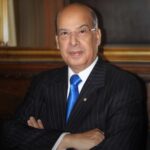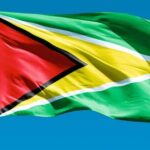(GuyanaChronicle)President Ali says Islam has to survive in the multiculturalism of the Caribbean
suggests study on the religion and multiculturalism in the region
PRESIDENT, Dr. Irfaan Ali has said that Islamophobia is increasing, and opined that this could be countered through education and dialogue.
He believes that Islamophobia, which is a social malice that fosters hatred, prejudice, bias and discrimination against persons based on their identification as Muslims, is one of the vices of the times.
In his address during the opening ceremony of the two-day International Symposium on the History and Legacy of Muslims in the Caribbean, Dr. Ali said Islamophobia is historic and can be traced back centuries.
He related that combatting it would, therefore, require uprooting its source and the recognition of its ill effects.
“I remain wedded to the view that studies of the history of Islam can help to identify the root cause of Islamophobia and help to uproot them,” President Ali said.
Further, given the misleading view that the practice of Islam cannot survive in a multicultural environment, President Ali said that religion must stay alive, and called for an academic paper to be designed on Islam and multiculturalism in the Caribbean.
“We have to design a paper on Islam and multiculturalism in the Caribbean because there is a mistaken view that somehow Islam and the practice of Islam cannot survive or is different from a multicultural environment,” he said, adding: “Islam has to survive and stay alive in this multiculturalism that I am speaking of.”
The symposium at the Arthur Chung Conference Centre aims to cover the fields of culture, history, political affairs, sociology, religion, tradition and a range of disciplines and interests present in the Caribbean today because of the Islamic presence and influence.
President Ali said that the history of Muslims in the Caribbean is one of resilience and resistance because, despite facing daunting challenges, Muslims managed to preserve their faith, culture and traditions while simultaneously becoming an integral part of the Caribbean societies.
“Within the historical narrative of Islam’s presence in this region, there exists valuable lessons of resilience and resistance that warrant attention,” he said.
The Head of State said that Guyana has the greatest example in the way its people live, collaborate, cooperate, and in the way they come together, respecting each other when it comes to religious tolerance and religious integration.
“Guyana can be that case study for the rest of the world where persons of different faith, make up the cabinet, the parliament… and the seamless integration through which each supports the other is one that not only warrants attention, but warrants a case study,” he said.
The President said that he anticipates that the symposium will help pinpoint the factors contributing to the dynamic relationship and interrelationship.
SPARKING A NEW DIALOGUE
“This conference must be able to produce that academic paper that must spark a new dialogue. An academic paper that comes from a multicultural, multi-ethnic community in the Western hemisphere can become a very important piece of document,” he said.
Noting that Islam promotes existence in a multicultural environment, President Ali said that he believes the symposium will help bring greater awareness of Islam in the multi-ethnic Caribbean.
Considering that Islamic history is very strongly cemented in the Caribbean region through slavery and indentureship, he said that the event is significant, as it provides a unique opportunity to delve into the rich and diverse history of Muslims in the region, and to add to the experience of the ongoing series about Islam and civilization.
“I want us to recognize that this region is multi-ethnic and multicultural in nature. So our deliberation must take into consideration the makeup of this region. Through the introduction of the institution of African enslavement and Indian indenturedship… it was under these systems that Muslims were introduced to the Caribbean,” President Ali said.
Dr. Mahmud Erol Kilic, Director General of the Research Centre for Islamic History, Art and Culture (IRCICA), said that the symposium represents a multilateral initiative that carries information about the cultural heritage of Muslims in the Caribbean.
“It builds a bridge between cultural audiences from the Caribbean and those in the other OIC (Organization of Islamic Cooperation) member states,” he said.
Dr. Kilic explained that IRCICA is the OIC’s cultural subsidiary and is entrusted with the mission to strengthen the common cultural grounds to study, preserve and promote correct understandings about the history, art, sciences, philosophy, scholarships, cultural and social traditions of Muslims across the world.
Further, Dr. Abdullah Hakim Quick, Special Envoy of the IRCICA, related that the symposium has brought together a number of experts to produce new narratives for the Caribbean region.
“We will look at the waves of Muslims who came into the Caribbean and study their impact. We are bringing forward documented evidence that shows that Muslims came to this region before Columbus,” he said.
Dr. Quick further explained: “From Spain, West Africa, written records, eye witness reports, maps, sculptures and much more. We will also look at the waves of the Muslims who came during the Atlantic slave trade bringing forward written documents, eyewitness reports, autobiographies that confirm that somewhere between 15 to 30 per cent of the enslaved African people who came into this region were Muslims.”
They will also look at the 19th century and the indentured labour period in detail, the struggle to maintain identity, preservation of religious practices and culture from Suriname to Guyana to Trinidad to the islands of the Caribbean, not only from the Indian experience but the Javanese experience.
“We will look at what was the impact of Muslims in the economy of the region, in sports and recreation, in arts culture and storytelling. We will shift also to the wave that came into the region in the 20th century bringing economic migration, Arabic speaking people, coming into this part of the world,” he said.
The International Symposium on the History and Legacy of Muslims in the Caribbean is being hosted by Guyana, in collaboration with IRCICA and the General Secretariat of the Organisation of Islamic Cooperation.










